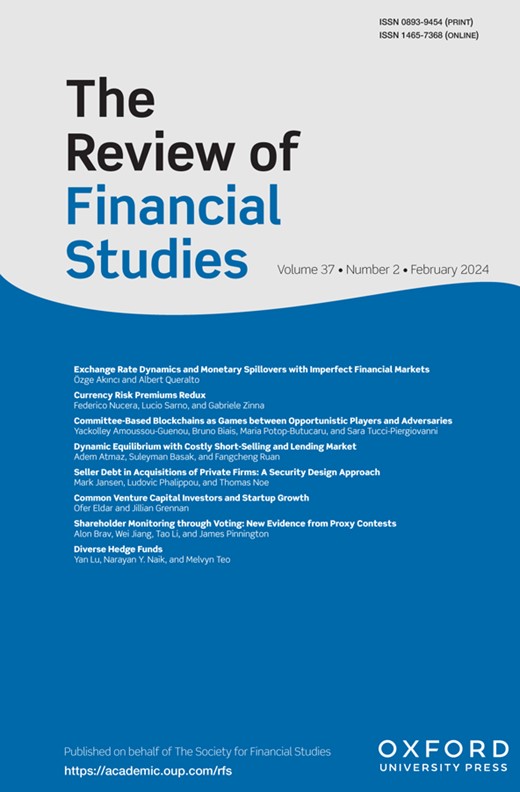银行作为流动性乘数器
IF 6.8
1区 经济学
Q1 BUSINESS, FINANCE
引用次数: 0
摘要
摘要本文描述了银行流动资产购买与存款发行决策之间的相互作用。利用全局博弈,我们推导出流动性乘数:当银行被赋予一个额外的流动资产单位以维持给定的流动性风险水平时,可以创造的存款数量。在我们的中心定理中,我们证明了它大于单位。这就要求银行在增加流动性供应方面发挥特殊作用,将流动资产“倍增”为更大量的存款。我们的理论对银行的资产负债表选择、流动性证券的定价以及公共流动性提供的作用具有启示意义。本文章由计算机程序翻译,如有差异,请以英文原文为准。
Banks as Liquidity Multipliers
Abstract We characterize the interaction between banks’ liquid assets purchases and deposit issuance decisions. Using global games, we derive a liquidity multiplier: the amount of deposits a bank can create when endowed with one additional unit of liquid asset to maintain a given level of liquidity risk. In our central theorem, we prove it is larger than unity. This entails that banks have a special role in enhancing liquidity provision, “multiplying” liquid assets into a larger quantity of deposits. Our theory has implications for banks’ balance sheet choices, the pricing of liquid securities, and the role of public liquidity provision.
求助全文
通过发布文献求助,成功后即可免费获取论文全文。
去求助
来源期刊

Review of Financial Studies
Multiple-
CiteScore
16.00
自引率
2.40%
发文量
83
期刊介绍:
The Review of Financial Studies is a prominent platform that aims to foster and widely distribute noteworthy research in financial economics. With an expansive editorial board, the Review strives to maintain a balance between theoretical and empirical contributions. The primary focus of paper selection is based on the quality and significance of the research to the field of finance, rather than its level of technical complexity. The scope of finance within the Review encompasses its intersection with economics. Sponsoring The Society for Financial Studies, the Review and the Society appoint editors and officers through limited terms.
 求助内容:
求助内容: 应助结果提醒方式:
应助结果提醒方式:


